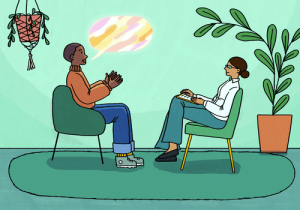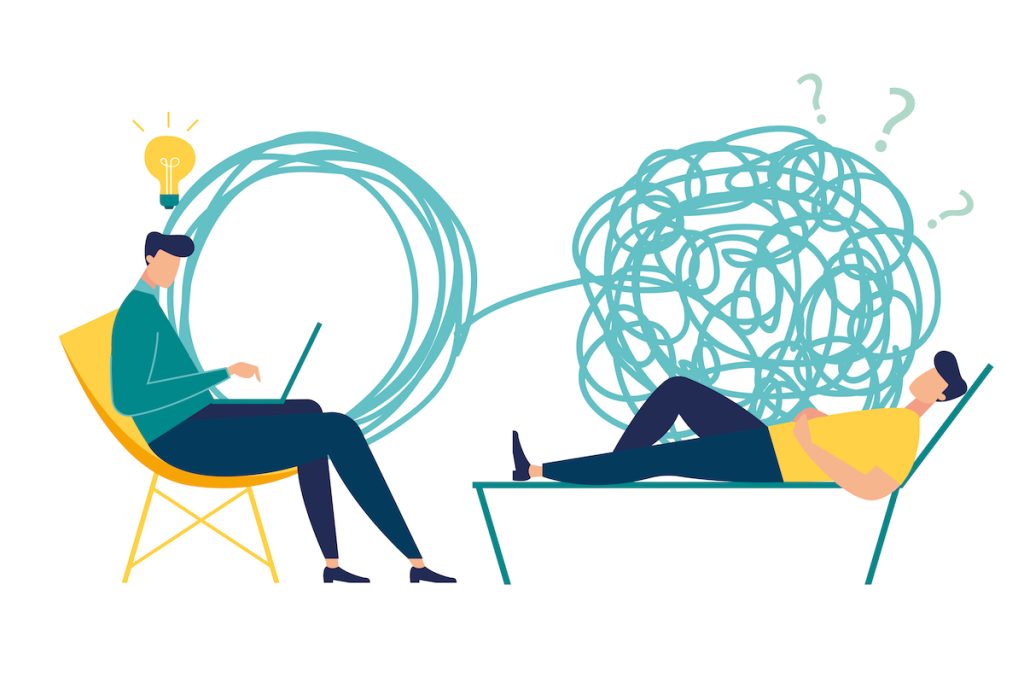Traumatic experiences can leave lasting impressions on people, often leading to long-term psychological issues. In some cases, these issues can be so severe that professional help is required. If you are looking for information on trauma counseling, you have come to the right place. In this article, we will discuss what trauma counseling is. Trauma counseling can help people who have experienced a traumatic event. We will provide tips on how you can find a good therapist who can help victims of traumatic experiences.
Contents
- 1 What Is Trauma Counselling?
- 2 Modes of Trauma Counselling
- 3 Stages Of Trauma Counselling
- 4 Who Can Benefit from Trauma Counselling?
- 5 Importance of Trauma Counseling
- 6 Advantages Of Trauma Counseling
- 7 What To Expect In A Trauma Counseling Session?
- 8 Drawbacks Of Trauma Counseling
- 9 Who Is A Trauma Counselor?
- 10 Self Care Tips After Trauma Counseling
- 11 How To Help Someone Who Is Suffering From Trauma?
- 12 Conclusion
- 13 A Word From Therapy Mantra
What Is Trauma Counselling?

Trauma counseling is a type of therapy that focuses specifically on helping people recover from traumatic experiences. Trauma counseling is provided by psychologists, psychiatrists, and social workers who have been trained in how to help people deal with trauma. Some common therapies used are cognitive behavioral therapy (CBT) or EMDR. A good therapist will help you to understand how the trauma has affected your life and work with you to develop coping strategies for the future. They will also be able to guide you through any difficult feelings that may come up as a result of having experienced such an event so that these do not become overwhelming or dangerous for yourself or others around you.
Modes of Trauma Counselling
There are many different modes of trauma counseling available. These range from face-to-face to online and phone sessions depending on what works best for each individual client’s needs. Some people like to have their own therapist who they can talk to privately. Other people prefer to talk about things in groups where they feel safe. Trauma counseling can be helpful if it is done correctly. This means that you can take your time to process your emotions without feeling rushed or pressured by anyone else involved in the session (e.g., family members who want answers now!). The goal here is not only helping clients cope better but also preventing future traumas from occurring again by helping them understand how past ones have impacted their lives negatively so that they can avoid situations similar to those which caused their problems initially.
Stages Of Trauma Counselling

- The first stage of trauma counseling is assessment. The assessor will want to know about the person’s history, including any traumatic experiences they may have had. They will also want to know about the person’s current mental and physical health, as well as their support network.
- The second stage of trauma counseling is stabilization. This phase is all about helping the person to feel safe and secure. The counselor will work with the person to develop coping skills and healthy ways to manage their emotions.
- The third stage of trauma counseling is reflection. In this phase, the counselor will help the person to understand why they experienced the trauma and what it means for them. This can be a difficult process, but it is an important step in healing.
- The fourth stage of trauma counseling is recovery. In this phase, the person begins to rebuild their life. They may have to face some difficult challenges, but with the help of their counselor, they can start to move on from the trauma.
Each stage of trauma counseling can take a long time. Remember that not everyone will move through the stages in the same way. Some people may take longer than others to reach the final stage of recovery. However, with time and patience, most people can make significant progress. If you are struggling with a traumatic experience, it is important to seek out professional help as soon as possible.
Who Can Benefit from Trauma Counselling?
Anyone who has experienced a traumatic event in life could benefit from trauma counseling. These experiences may include domestic violence, sexual assault or rape, childhood abuse (physical/emotional), witnessing horrific events like murder/suicide attempts, etc., being involved with an accident resulting in serious injury and death among others things as well as any other situation where someone feels unsafe or threatened by another person’s behavior towards them personally such as bullying at school workplace harassment etcetera; all these types of circumstances qualify for this type of therapy because it helps people deal with emotions associated them properly instead just suppressing them without ever really dealing with them at all which can lead to long-term negative effects on mental health over time if not dealt with properly through counseling sessions so we do recommend getting help right away before any permanent damage occurs in your own mind or body.
Importance of Trauma Counseling
Trauma counseling is a very important part of recovery for many people who have experienced something traumatic in their lives. Many people find it hard to talk about what happened and this makes things worse because they are unable to process the experience properly; when someone goes through therapy, they will be given an outlet where they feel safe enough that nobody else knows their story except themselves so there’s no fear talking about anything without feeling judged by others around them too much just like how therapists themselves cannot disclose any information given during sessions without permission from clients themselves first which means you’re really the only one who knows everything so there’s nothing at stake here except your own personal wellbeing!
Advantages Of Trauma Counseling
There are many advantages to trauma counseling. Some of these benefits include the following:
- It can help victims understand and process what happened to them.
- It can provide a safe space for victims to share their experiences.
- Also, it can help victims develop better coping skills.
- It can improve relationships with friends and family members.
- It can reduce symptoms of posttraumatic stress disorder (PTSD).
What To Expect In A Trauma Counseling Session?

If you’re considering seeking out trauma counseling, it’s important to understand what to expect from these sessions. Here are some things you can expect:
You will be talking about the traumatic event that occurred
This is the main focus of trauma counseling and it’s important that both the counselor and client are aware of this upfront. The goal is to help clients process their experiences so they can move forward with their lives.
Counselors are not psychotherapists
As mentioned earlier, counselors are not psychotherapists and they can’t prescribe medications or provide therapy services. They work with people who have experienced a traumatic event and want help coping with it. They talk about the experience during regular meetings each week until they feel ready to move forward without further assistance from someone else outside their immediate family members.
Sessions are short-term
Trauma counseling sessions usually last around 30 minutes to an hour. This is because the goal is to help clients process what happened and start moving on from the experience. Typically, this takes a few months of meeting once a week.
They can be done in person or over video chat
Sessions can be done in person or over video chat, depending on what the client prefers.
Location may vary
The location of these sessions can vary, but they usually take place at a clinic or therapist’s office near where the client lives. This way, it is easier for them to get there and back home again afterward.
Clients should not expect long-term therapy
As mentioned earlier, trauma counselors are not psychotherapists and they don’t provide long-term therapy services. The goal of these sessions is to help clients process their experiences so they can move forward with their lives. If clients feel like they need more assistance after completing a few months of regular meetings with their counselor, they should seek out another form of mental health assistance from a professional who specializes in that area.
Counselors are trained to deal with trauma
A counselor is trained to help clients cope with their traumatic experiences, but they don’t provide long-term therapy services. The goal of these sessions is to help clients process what happened and start moving on from the experience. If you are considering seeking out trauma counseling, remember that counselors are not psychotherapists. They cannot prescribe medications or provide therapy services like some other types of mental health professionals can. Also, they work with people who have had traumatic experiences and want help coping. They meet with these people every week until they feel ready for further assistance. If the person has any family members affected by the traumatic event, those family members can also receive help.
Drawbacks Of Trauma Counseling
- There are very few drawbacks to trauma counseling, but one of them may be that it is expensive. However, many insurance companies do cover therapy sessions, so it is worth checking with your provider.
- Another potential drawback is that the process can be slow and frustrating. It can take a long time for people to move through the different stages of trauma counseling. However, with patience and hard work, most people can make significant progress.
If you are struggling with a traumatic experience, it is important to seek out professional help as soon as possible. Trauma counseling can provide you with the support you need to heal and move on from the event.
Who Is A Trauma Counselor?

A trauma counselor is a professional who helps people who have experienced a traumatic event. They provide support and guidance to help the person process the experience and move on from it.
Trauma counselors have training in psychology and counseling, and they specialize in helping people deal with traumatic experiences. They can provide valuable insight and support to those who are struggling with a traumatic event.
If you are experiencing difficulties following a traumatic event, it is important to seek out professional help. A trauma counselor can provide you with the support you need to heal and move on from the experience.
Self Care Tips After Trauma Counseling
Following trauma counseling, it is important for victims to practice self-care. Some tips to follow include:
- Allow yourself time to heal.
- Do not push yourself too hard.
- Take care of your physical and emotional health.
- Talk about how you’re feeling with friends and family members.
- Seek additional support if needed.
How To Help Someone Who Is Suffering From Trauma?

If you know someone who is suffering from a traumatic experience, there are ways that you can help. Here are a few tips:
- Listen to them and let them talk about what happened: This is a very important step in helping someone who is suffering from trauma. Just listening and allowing them to talk without judgment can be very helpful.
- Do not push them to talk about it if they are not ready: Some people may not be ready to talk about what happened right away. It is important to respect their wishes and give them time to heal in their own way and at their own pace.
- Provide support: Friends and family members can provide valuable support for those who are struggling with a traumatic experience. Let them know that you are there for them, and offer help when needed.
- Encourage professional help: If the person seems like they could benefit from professional help, encourage them to seek out a trauma counselor or therapist. Professional help can provide valuable support to those who are suffering from trauma.
Trauma counseling can be an important part of the healing process for those who have experienced a traumatic event. If you are struggling following a traumatic event, it is important to seek out professional help right away. A trauma counselor can provide you with the support you need to heal and move on from the experience.
Conclusion
Trauma counseling can be a very effective way to help victims of traumatic experiences. By providing a safe and supportive environment, counselors can help victims process and cope with their trauma. If you or someone you know is struggling after a traumatic event, please seek out professional help. Trauma counseling can make a world of difference for those affected by trauma. Thank you for reading!
A Word From Therapy Mantra
Your mental health — Your psychological, emotional, and social well-being — has an impact on every aspect of your life. Positive mental health essentially allows you to effectively deal with life’s everyday challenges.
At TherapyMantra, we have a team of therapists who provide affordable online therapy to assist you with issues such as depression, anxiety, stress, workplace Issues, addiction, relationship, OCD, LGBTQ, and PTSD. You can book a free therapy or download our free Android or iOS app.


